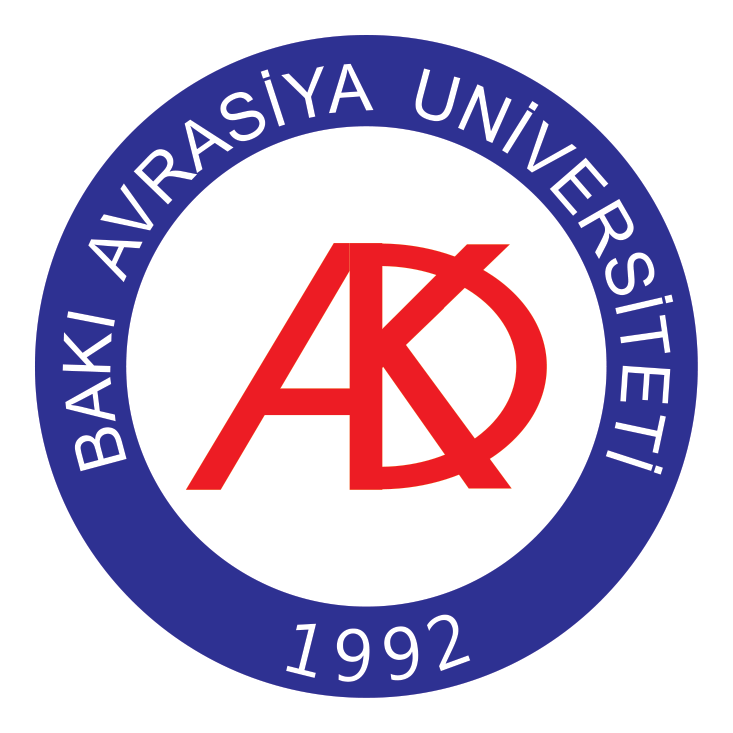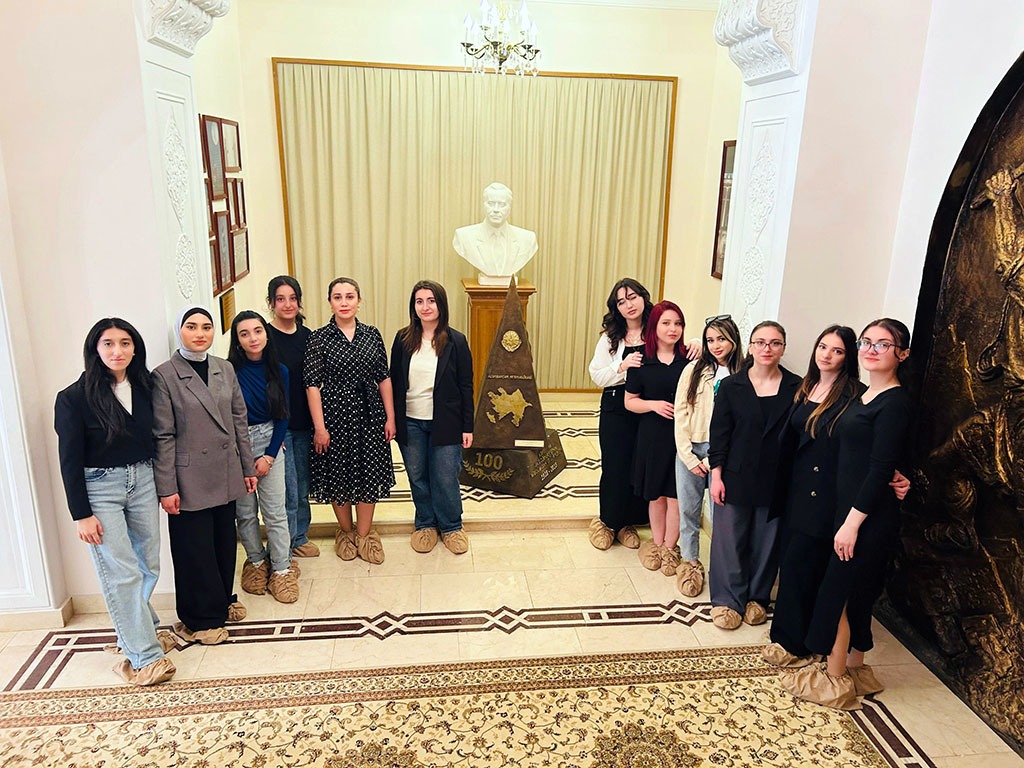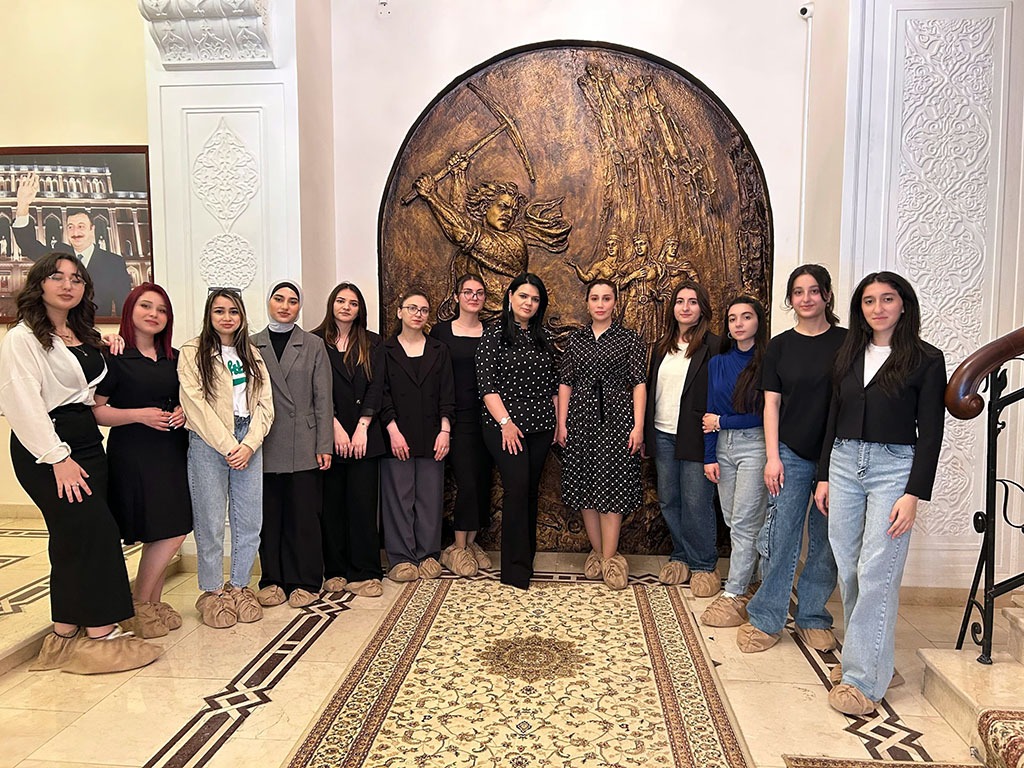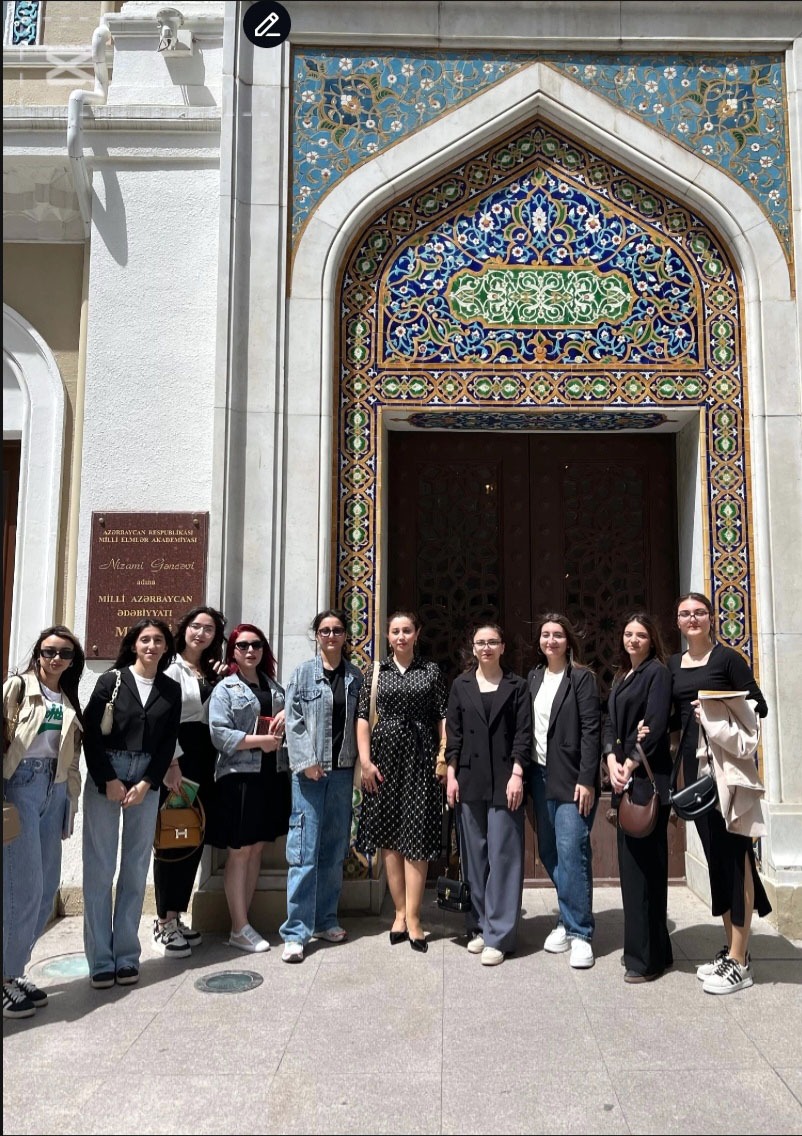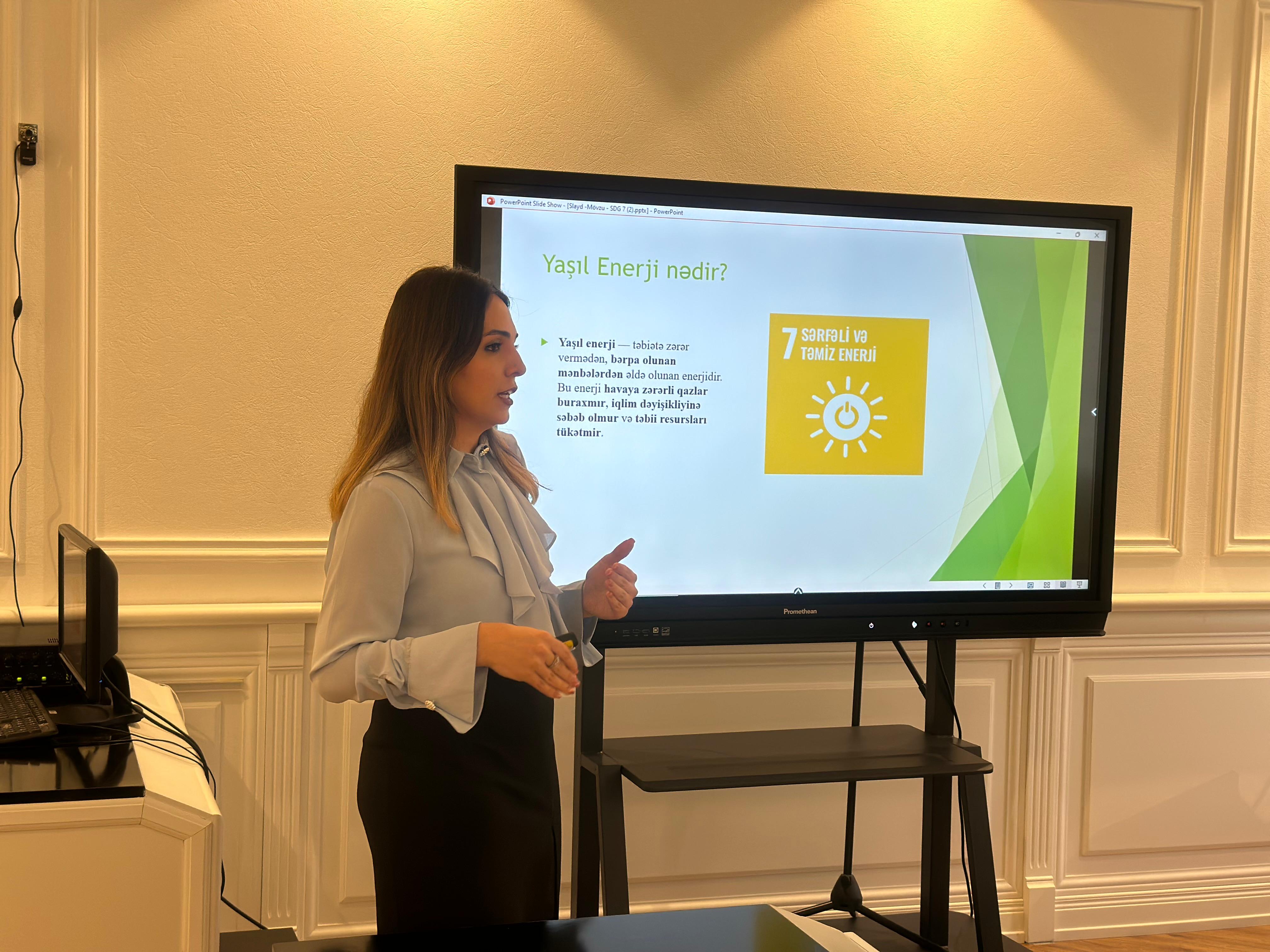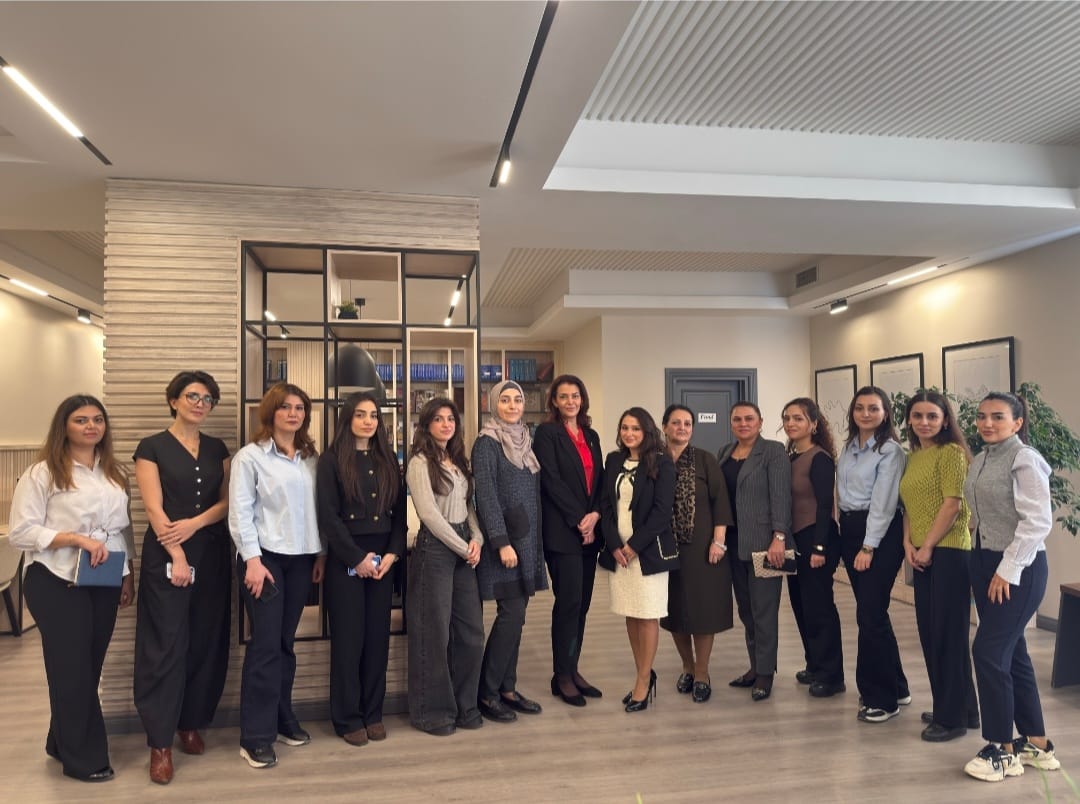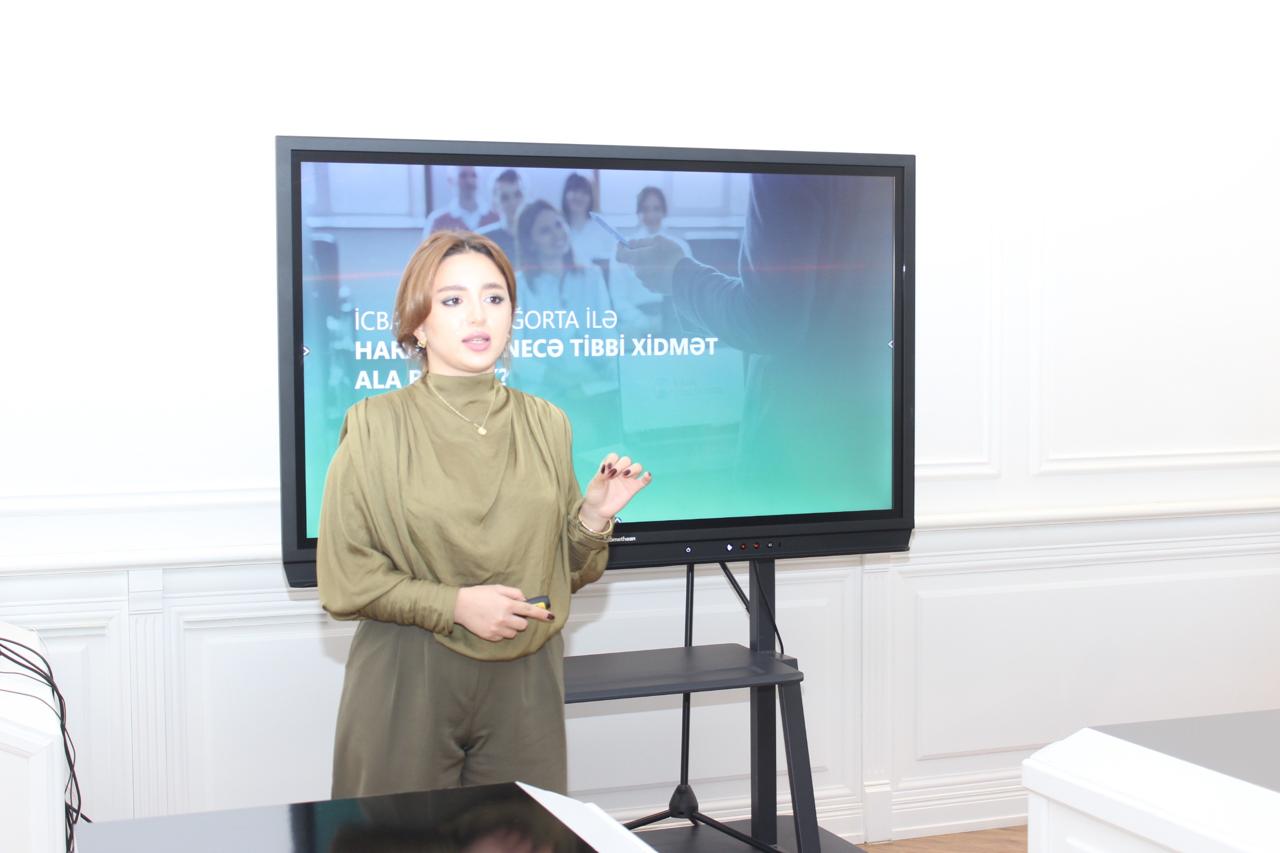- 07 May 2025
Under the organization of Chichek Huseynova, Senior Lecturer at the Department of Azerbaijani and World Literature of Baku Eurasian University (BAAU), the students of the Faculty of Philology visited the National Museum of Azerbaijani Literature named after Nizami Ganjavi as part of a program promoting equitable and accessible education through cultural and place-based learning experiences.
In the museum’s exhibition halls, which meet modern standards, the developmental stages of Azerbaijani literature are reflected, offering students an opportunity to deepen their cultural knowledge and understanding of heritage-based education. The students became acquainted with impressive exhibits displayed in the exposition, including ancient manuscripts, handwritten works by famous calligraphers, rare printed books, personal belongings of poets and writers, documentary photographs, miniatures, paintings, carpets, sculptures, and other valuable items that contribute to sustainability education and the preservation of traditional knowledge.
The hall dedicated to the victims of repression also drew the students’ attention, reinforcing peace and humane education values within the context of Azerbaijani history.
During the tour, the students closely observed the stands, photographs, paintings, documents, books, and personal items dedicated to prominent representatives of Azerbaijani literature such as Mahsati Ganjavi, Khagani Shirvani, Nizami Ganjavi, Imadaddin Nasimi, Shah Ismayil Khatai, Muhammad Fuzuli, Molla Vali Vidadi, Molla Panah Vagif, Gasim bey Zakir, Abbasgulu aga Bakikhanov, Heyran khanum, Mirza Fatali Akhundzade, Khurshidbanu Natavan, Najaf bey Vazirov, Mirza Alakbar Sabir, Firidun bey Kocharli, Jalil Mammadguluzade, Abdurrahim bey Hagverdiyev, Suleyman Sani Akhundov, Abdulla Shaig, Huseyn Javid, Salman Mumtaz, Yusif Vezir Chamanzaminli, Jafar Jabbarli, Samed Vurghun, Mir Jalal Pashayev, Mirza Ibrahimov, Bakhtiyar Vahabzade, Khalil Rza Uluturk, and other well-known literary figures.
They were provided with detailed information about the exhibits, which helped broaden their worldview and pedagogical appreciation of literature as a vital part of education for sustainable development. Such educational visits support the integration of environmental and cultural education into tertiary learning, fostering an equitable, inclusive, and sustainability-oriented learning environment.
